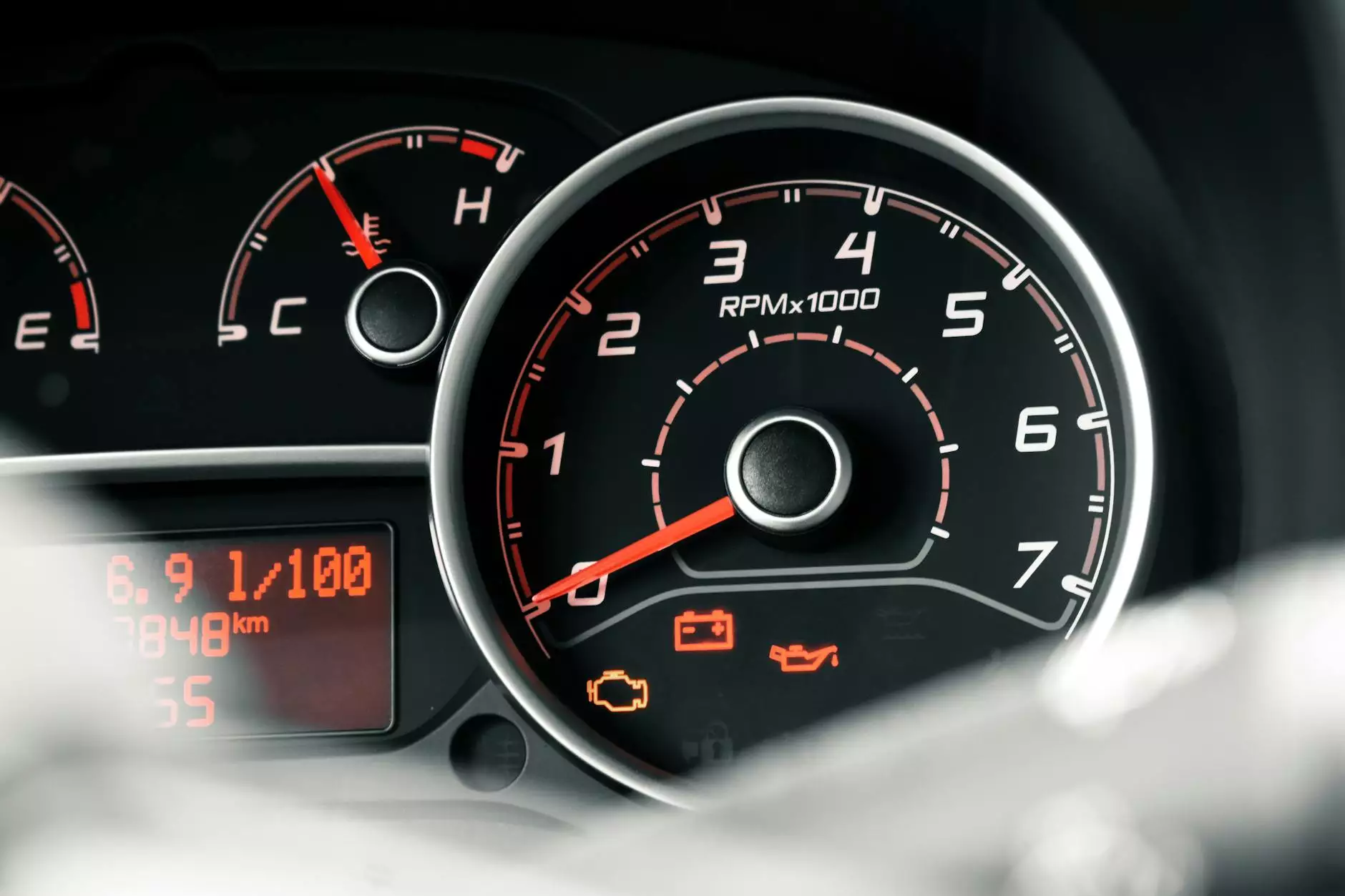Understanding Car Sensors: The Backbone of Modern Vehicles

The evolution of the automotive industry has been remarkable, and at the heart of this transformation lies the innovation of car sensors. These technological marvels enhance vehicle performance, safety, and efficiency. As a pivotal part of modern automobiles, car sensors are often the unsung heroes that contribute to a smoother and safer driving experience.
What are Car Sensors?
Car sensors are devices installed in various parts of a vehicle that collect information about its performance and the surrounding environment. These sensors serve as critical components of several systems within a vehicle, ensuring they operate optimally. They play an essential role in many functionalities, including:
- Engine management
- Safety systems
- Comfort features
- Fuel efficiency
- Emission control
By continuously monitoring a wide array of variables, car sensors can alert the driver to issues, improve fuel economy, and reduce vehicle emissions, making them crucial not only for performance but also for ecological responsibility.
The Different Types of Car Sensors
There are various types of car sensors, each serving a specific purpose within the vehicle's framework. Understanding the different types can help you appreciate their importance.
1. Oxygen Sensors
Oxygen sensors are integral to your car's fuel management system. They measure the amount of unburned oxygen in the exhaust gases and relay this information to the engine control unit (ECU). This helps in adjusting the air-fuel mixture, ensuring that the engine operates efficiently, maximizing power, and minimizing emissions.
2. Temperature Sensors
Temperature sensors monitor the condition of the engine, transmission, and even the cabin. By providing essential data about the various temperatures, these sensors help avoid overheating, thereby enhancing the vehicle's longevity and performance.
3. Pressure Sensors
Modern vehicles use pressure sensors to monitor the performance of various systems, including the fuel system, oil system, and even the brake system. For example, tire pressure sensors keep track of tire health and alert drivers when the pressure is too low, thus promoting safety.
4. Speed Sensors
Speed sensors measure the wheel speed and help in controlling various functions such as cruise control and anti-lock braking systems (ABS). They play a vital role in maintaining stability during different driving conditions.
5. Parking Sensors
Parking sensors enhance safety while maneuvering in tight spaces. They use ultrasonic or electromagnetic waves to detect obstacles around the vehicle, issuing alerts via audible signals to help drivers avoid collisions.
Why are Car Sensors Important?
Car sensors are not just about enhancing convenience; their importance spans safety, performance, and environmental consciousness:
1. Enhancing Safety
The integration of car sensors into safety systems has drastically reduced accidents. Sensors like the ABS and parking aids help prevent potential collisions, making driving a safer activity for everyone on the road.
2. Improving Performance
With real-time data, car sensors enable optimized performance. For instance, by regulating the fuel-air mixture, oxygen sensors help improve fuel efficiency while maximizing engine power output.
3. Facilitating Maintenance
Many car sensors act as indicators for vehicle maintenance. For example, a malfunctioning sensor can trigger warning lights that alert drivers to get their vehicle checked. This proactive approach can prevent minor issues from escalating into significant repairs.
4. Reducing Environmental Impact
With stricter regulations on vehicle emissions, the role of car sensors in controlling emission levels has become increasingly important. Sensors contribute to lower carbon footprints, aligning with global efforts to combat climate change.
Choosing the Right Car Sensors
When it comes to car sensors, selecting the right type for your vehicle is crucial. Here are some factors to consider:
- Vehicle Compatibility: Ensure that the sensor you choose is compatible with your vehicle model.
- Quality: Opt for sensors from reputable manufacturers to avoid reliability issues.
- Purpose: Determine the specific function you need the sensor for, such as performance monitoring or safety enhancement.
- Installation Requirements: Some sensors may require professional installation, while others can be DIY.
Installation of Car Sensors
Installing car sensors can be straightforward or complex, depending on the type of sensor and the vehicle model. Here’s a general guide to help you with installation:
1. Identify the Location
Refer to your vehicle’s manual to locate where the sensor is to be installed. Different sensors will have specific installation points, such as the exhaust manifold for oxygen sensors or on the body of the car for parking sensors.
2. Gather Necessary Tools
You may need a basic toolkit, which typically includes:
- Socket set
- Screwdrivers
- Wire strippers (if wiring is involved)
- Electrical tape
3. Follow Installation Instructions
Always refer to the manufacturer’s instructions for the most precise installation steps. If you're uncertain, it can be beneficial to consult an automotive technician.
Maintaining and Troubleshooting Car Sensors
Like any other component, car sensors require maintenance and sometimes troubleshooting. Here are some tips:
1. Regular Inspections
Frequent inspections can help identify any issues early on. Check the wiring and connections to ensure they are clean and free from corrosion.
2. Clean the Sensors
Outside contaminants can affect sensor performance. Regularly clean the sensor surfaces, especially those exposed to external elements.
3. Monitor Dashboard Warning Lights
Be vigilant about warning lights on your dashboard that indicate sensor malfunctions. Address these warnings promptly to prevent further complications.
4. Consult Professionals
If you're experiencing issues beyond your expertise, don't hesitate to seek help from a professional mechanic who specializes in electronic diagnostics.
The Future of Car Sensors
The automotive industry is rapidly evolving, with car sensors at the forefront of innovation. The future promises smarter sensors that integrate with AI and the Internet of Things (IoT), enhancing vehicle capabilities like:
- Autonomous Driving: Sensors will play a critical role in the development of self-driving cars by providing real-time data about the environment.
- Vehicle Communication: Future sensors may enable vehicles to communicate with each other to prevent accidents and improve traffic flow.
- Advanced Diagnostics: Enhanced sensor technology will allow for better predictive maintenance, alerting drivers before a part fails.
Conclusion
In conclusion, car sensors are integral to the modern automotive landscape, playing vital roles in safety, performance, maintenance, and environmental sustainability. Understanding their types, functions, and importance can help you make informed decisions about your vehicle. As technology advances, the potential for innovation within car sensors is immense, paving the way for a safer and more efficient driving experience. Embrace the future of automotive technology, and explore the vast array of car sensors available at imautoparts.com.









